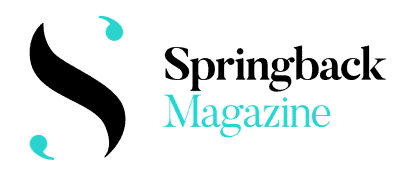Springback Academy 2015
Review

M.E.N
Edhem Jesenković
What made M.E.N such a predictable and remarkably blunt show, one might ask. Was it the title that made an alternative perspective beyond gender generalization impossible? Or maybe the performative qualities that didn’t seem to defy any of the testosterone driven movements which overwhelmed the stage with the virtuosic physicality, purely to appeal to the audience? Was it a matter of stage aesthetics? Or might adding some colour to the costumes enliven the patina of the choreography? Could some more delicate and demure movement, add to the show a less obvious and superfluous approach to male nature? Or are we just left with the impression that a structure was all the show needed in order to aim for a more respectful reaction from the audience? Is it wrong to project our preferences so determinedly onto a piece that in other circumstances might seem simply no exception to a wider rule?
Bursting into drops of testosterone, one, two, three and four men appear and disappear from behind a set of oblong boxes. Edhem Jesenkovic builds M.E.N with skilled, dynamic, athletic and fluid dancing sketched through a sequence of solos, duets, trios and unisons. The male quartet on board – Jesenkovic included – attempt to capture the inner worlds and outer conflicts of male identity: a man boxing, men chasing and mirroring each other, throwing challenging and fragile glances, loneliness. However, the gestures and attitudes flounder on the surface. The monotonous music, composed by Havard Perdesen and Jesenkovic himself, flattens the choreography; there is no climax. The lighting design unfolds changing evocative atmospheres. At last, a striking image: the dancers encapsulate themselves within the boxes with translucent screens, which lighten up from inside; and they become shadow puppets.
The title – M.E.N – says it all. Capitalised. Declamatory. Male, of course. Edhem Jesenkovic’s quartet plays out through a series of masculine scenarios. The opening solo, set on and around a box, flits from casual to show-off to wary, finally revealing the silhouette of another man caught inside the box, like a caged soul. There are, it turns out, four boxes: one for each man. They are arranged to form a long desk, around which two men pursue each other in futile circles. Or they are used as stern lecterns for three men, while a fourth presents himself before them as if his body were a statement in his defence. There are face-offs and stand-offs, and though there are also scenes of balance, trust and support, the overall sense is of prowess and tensile strength – always impressive, but increasingly wearing.
Edhem Jesenković’s M.E.N is supposed to be giving some perspective on manhood, quite obviously. Men take over the stage indeed, one then two, until a gang of four is united.
They move square light-filled boxes around. They dance a floor sequence reminiscent of the Rosas danst Rosas’ all-female version. They race around in briefs and confront one another in duets going round in circles. And it’s all drenched by a heavy and flat electro soundscape that works against bringing a vivid energy to the whole piece. The relation they try to build is unclear, and nothing stands out, except an interesting lighting design that cut out some moments of action. But it’s all loose at the ends. As far as manhood is concerned, no real statement is made on the matter, and we crave surprises. Unfortunate.

